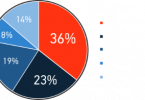Unlike some of the online certificates filling the internet these days, Amazon Web Services (AWS) certifications are the real deal. They provide an industry standard for demonstrating knowledge regarding one of the largest cloud service providers and its services. These rigorous evaluations thoroughly test competency by emphasizing best practices and hands-on applications, making sure that the resulting certification is an accurate representation of the test-taker’s skills.
There are 12 AWS certifications available that require a fee typically between $100 and $300, as well as a potentially hefty time investment in test preparation. However, investing in a certification can provide a substantial payoff in a world that increasingly relies on cloud services platforms such as AWS. Employers will appreciate the verification of their employees’ skills, and professionals in the workplace will be able to prove their capabilities as well as further enhance them.
Available AWS Certifications and Categories
The 12 AWS certifications fall into four categories: Foundational, Associate, Professional, and Specialty. The individual certifications and their associated categories are as follows:
| • | Cloud Practitioner | (Foundational) |
| • | Solutions Architect | (Associate) |
| • | SysOps Administrator | (Associate) |
| • | Developer | (Associate) |
| • | Solutions Architect | (Professional) |
| • | DevOps Engineer | (Professional) |
| • | Advanced Networking | (Specialty) |
| • | Security | (Specialty) |
| • | Machine Learning | (Specialty) |
| • | Alexa Skill Builder | (Specialty) |
| • | Data analytics | (Specialty) |
| • | Database | (Specialty) |
The Foundational, Associate, and Professional certifications are all based on the experience and knowledge that the test taker has with regards to professional roles in IT. Specialty certifications focus more on specific technical areas that might be applicable to various roles. The sections below discuss each of the categories in more detail.
Foundational Level
Cloud Practitioner is the only Foundational AWS certificate available. It is ideal for candidates with at least six months of experience in any role involving experience with the AWS cloud, such as technical, sales, purchasing, financial, or managerial positions. It may be possible to gain this certification even with less experience, but it would likely require additional study and preparation beforehand.
This certification will verify that the candidate has an overall familiarity with the AWS Cloud and related knowledge and skills. While other certifications tie into specific technical roles such as Developer or Architect, the Cloud Practitioner certification provides a more general foundation for any career path.
Associate Level
Each of the Associate evaluations typically requires at least a year of previous hand-on experience and knowledge regarding AWS services and related technologies. The three certifications within the Associate level are:
- Solutions Architect
- SysOps Administrator
- Developer
The Solution Architect certification focuses on candidates with experience with the design of scalable, fault-tolerant, and cost-efficient distributed systems on AWS. It tests knowledge regarding how to design and deploy applications using AWS technologies, define solutions using customer requirements and architectural design principles, and provide guidance on implementation throughout the life cycle of a project using best practices.
The SysOps Administrator certification then focuses on candidates with experience in systems operations roles involving deployment, management, and operations within AWS. Specifically, it will validate the test-taker’s ability to implement and control data flows in and out of AWS, identify appropriate AWS services for specific situations, estimate AWS usage costs, and migrate workloads to AWS.
Finally, the Developer certification examines the candidate’s capabilities when it comes to the development and maintenance of AWS-based applications. It will test understanding of AWS services, their uses, and best practices, as well as proficiency in the development, deployment, and debugging of cloud-based applications using AWS.
Professional Level
Reaching the top of the ladder, the Professional AWS certifications each require a full two years of experience, with each candidate being successful and highly capable within their respective roles. The two Professional-level certifications are:
- Solutions Architect
- DevOps Engineer
The Solutions Architect certification validates that the individual is adept at managing and operating systems on AWS. This includes designing and deploying reliable, scalable, available, and fault-tolerant applications, as well as migrating complex applications and implementing cost-control strategies. Candidates should be familiar with cloud architecture on AWS, various AWS templates, the AWS Well-Architected Framework, and other key AWS technologies such as VPN and AWS Direct Connect.
The DevOps Engineer certification validates those candidates with experience in the provision, operation, and management of AWS environments. The exam includes evaluation of abilities regarding security controls, compliance validation, and governance processes, as well as implementation, management, defining, and deployment of continuous delivery systems, monitoring, logging systems, metrics, and more on AWS. Candidates should know at least one high-level programming language, understand modern DevOps operations and methods, and have experience with highly automated infrastructures and administration of operating systems.
Specialties
Whereas the previous three categories represent the core role-based certifications that AWS offers, the Specialty certifications provide evaluations in other specific technical areas. These certifications include:
- Advanced Networking
- Security
- Machine Learning
- Alexa Skill Builder
- Data Analytics
- Database
The recommended experience varies for each specialty, ranging from six months to two years of work experience. Some even recommend already having one of the other core AWS certificates before venturing into the specialty. Take a look at the AWS page for each specialty to find out their individual scopes and prerequisites.
Benefits of an AWS Certification
Although the world of technology is constantly changing, AWS remains one of the top cloud service providers in the market. Obtaining certifications that demonstrate competency in AWS services helps candidates clearly demonstrate to potential employers exactly what skills they have, thus making them more competitive and giving them an edge in salary negotiations. Speaking of salary, IT professionals who have gained AWS certification make an average of $129,000 per year. And those with professional-level certifications such as Solutions Architect might rake salaries greater than $148,000.
Apart from improving employment opportunities, AWS certifications can also aid candidates in improving skills or learning new ones. Preparing for the exams through practice exercises and studying can reinforce knowledge on key concepts and provide introductions to new areas. AWS even outlines several “learning paths” that can help guide candidates toward the best certifications for obtaining specific professional roles in the future.
Pick the Right AWS Certification For You
The two main factors that will determine the appropriate certification are the experience level and career path desires of the candidate. If you already work in a particular field and wish to move up to higher positions, look for certifications that match your capabilities. Then, check the requirements in terms of experience and skills to determine if an Associate, Professional, or Specialty certification is the best fit.
If just starting out, the Foundational Cloud Practitioner certificate is probably the right choice. Then, exploring the various learning paths can help you identify specific professional goals and the best certificates to reach them.
Study and Practice
After identifying the right certificate, there are many options for preparing for the exam. Professionals with many years of experience may not feel the need to prepare; however, it could still be useful to do a practice exam or two just to get familiar with the format of the questions and topics.
Useful ways to get ready for AWS certification include taking training classes, using study guides, taking practice exams, and reading AWS whitepapers. Training classes are available both through AWS and through third-parties such as Udemy or Cloud Academy. These classes may offer the most comprehensive option as many of them provide not only educational material but also practice exams and hand-on exercises. Amazon also offers study guides in both ebook and physical formats.
Studying for any given exam is likely to require anywhere from 80 to 120 hours. For those candidates currently working full-time jobs, this likely means months of preparation. The recommendation is to start a study regimen about two or three months before the exam date with a consistent weekly schedule designed to cover all the relevant material in the given timeframe.
For more details on the format, type, delivery method, time limit, costs, and available languages of each exam, check the page of the certification by clicking on its badge on the AWS page.







